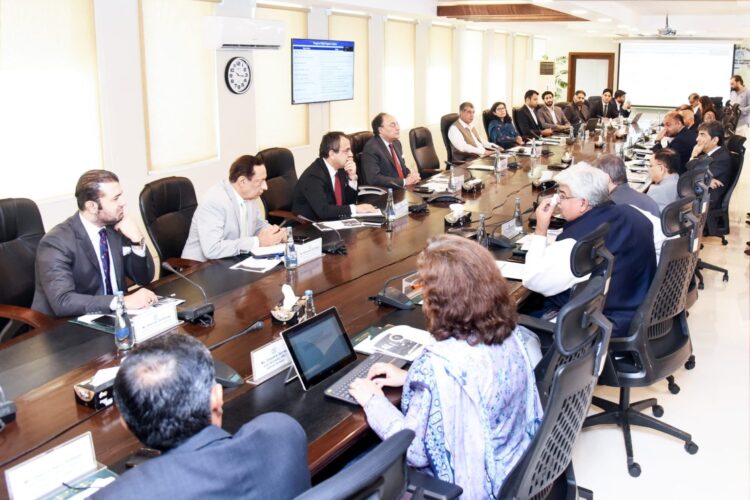Islamabad: In a bid to streamline government operations and strengthen power sector oversight, the Cabinet Committee on Rightsizing of the Federal Government convened a meeting on Monday to assess the performance and future roadmap of the Power Planning and Monitoring Company (PPMC).
The meeting, chaired by Federal Minister for Finance and Revenue Senator Muhammad Aurangzeb at the Finance Division, was attended by Minister for Power Sardar Awais Ahmad Khan Leghari along with senior officials from various Ministries and Divisions.
During the session, the Power Division delivered a comprehensive presentation on the PPMC, covering its institutional framework, strategic functions, notable achievements, and progress on critical initiatives. The briefing underscored PPMC’s pivotal role as the technical backbone for planning and performance monitoring in the power sector. Special emphasis was laid on enhancing evidence-based forecasting, improving system efficiency, and fostering better sectoral coordination to meet future energy demands.
A preliminary presentation was also made by the Law Division on its scope of work, performance benchmarks, ongoing rightsizing initiatives, and their broader implications for public policy and service delivery. The presentation included a comprehensive overview of the Division’s attached departments and proposed measures to improve institutional efficiency, eliminate functional overlaps, and achieve better outcomes through leaner administrative structures.
Subsequently, the Cabinet Committee considered a set of recommendations submitted by the Sub-Committee on Rightsizing, chaired by Mr. Salman Ahmad, Ambassador-at-Large, pertaining to the organizational framework of the Revenue Division.
The proposals outlined a broad approach to institutional reform aimed at enhancing structural efficiency, optimizing human resource deployment, and strengthening alignment with overarching national objectives. Emphasis was placed on promoting a results-oriented governance model through improved performance management systems and the adoption of accountability mechanisms to support more effective and responsive public service delivery.
Chairing the meeting, the Finance Minister underscored that the FBR stands at the core of Pakistan’s fiscal architecture. The Government remains fully committed to implementing the FBR transformation plan approved by the Prime Minister, with a view to raising the tax-to-GDP ratio and transforming FBR into a modern, efficient, and accountable revenue authority that is essential to fiscal sustainability, he said.
The Minister also stressed the importance of embedding performance-driven human resource practices across the organization to ensure that every rupee of public expenditure translates into measurable improvements in tax collection, compliance, and service delivery.


























